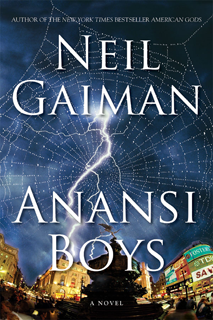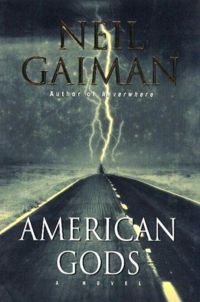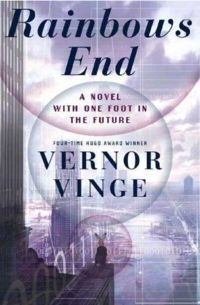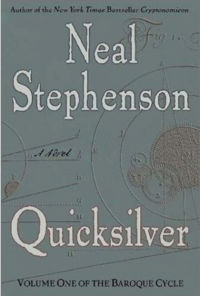“You shouldn’t say that about your father!”
“Well, it’s true. He was crap. A rotten husband and a rotten father.”
“Of course he was!” said Mrs.Higgler, fiercely, “But you can’t judge him like you would judge a man. You got to remember, Fat Charlie, that your father was a god.”
“A god among men?”
“No. Just a god.” She said it without any kind of emphasis, as flatly and as normally as she might have said “he was diabetic” or simply “he was black.”
– Neil Gaiman in Anansi Boys

Anansi Boys may be the sequel to Neil Gaiman’s American Gods but where its predecessor was dour, tragic and epic in scope, this sequel is light-hearted, humorous and family-centered. In place of the hardened ex-convict Shadow of American Gods, the protagonist of Anansi Boys is a regular guy stuck with the unfortunate nickname of Fat Charlie. Not that Charlie is really fat, mind you, just somewhat rounded around the edges. Charlie’s father has a knack for naming things and having the names stick, you see, and as the reader soon learns, that’s just the least of his father’s talents.


